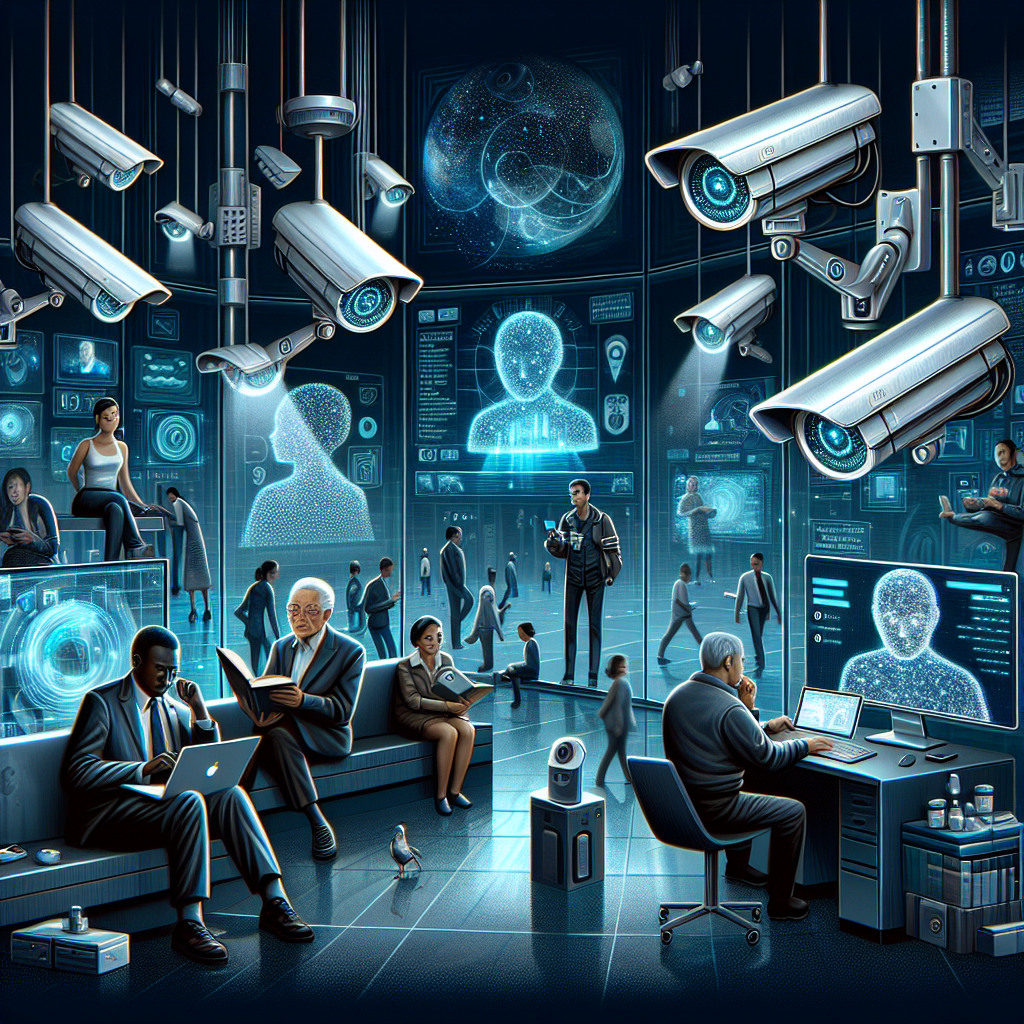“Smile and Wave! As User Demand Increases, AI-powered Cameras Stir Up a Chunk of Laughter and a Dash of Privacy Concerns!”

“AI-powered cameras spark privacy concerns as usage grows”
“As AI-powered cameras become increasingly prevalent, concerns grow over how the technology will impact privacy. After all, these devices have the ability to recognize faces, track movements, and even predict behavior. While the technology offers a range of benefits, from identifying criminals to streamlining operations, it also raises serious questions about what it means to have privacy in an age of AI.”
Quaint isn’t it? Living in a epoch where your every move can possibly be captured, analyzed, and maybe predicted. Truly the stuff of sci-fi turned reality – only this isn’t an episode from “Black Mirror” we’re discussing, but the rapidly expanding usage of AI-powered cameras. They come with the tantalizing appeal of safety and streamlined operations. But hold on there, sunshine. Let’s not get too carried away in the flowery promises of technology.
Every coin has two sides and this one’s no different. Don’t these AI-enabled all-seeing cameras pose a serious threat to personal privacy? It’s like being in a reality show 24/7, sans the fame and fans. Just think about it – the technology literally has the capabilities to correctly recognize faces, keep a track of movement, and predict behavior. A pinch of paranoia added to the mix doesn’t seem too outlandish now, does it?
So, while our law enforcement agencies are drooling over the advantages – bagging culprits and maintaining law and order – a fog of dire apprehension is setting in amongst those conscious of their privacy rights.
After all, Privacy isn’t merely about hiding wrongdoings. It’s about the right to be left alone. To live an unscrutinized life. It is with this perspective that the rapid infiltration of AI-powered cameras into both public and private spaces feels slightly dystopian.
There exists no comprehensive regulatory framework ensuring that this nifty little tech innovation doesn’t get exploited. It’s like handling nuclear energy without any safety measures in place – sounds tantalizing yet terrifying, doesn’t it? Time will tell what’s the cost of such a double-edged sword. The question remains – when our convenience and perceived safety conflicts with personal privacy, which side will weigh heavier on the scale of compromise? The discussion is at full throttle and let’s hope the outcome isn’t a privacy apocalypse. The need of the hour is a well thought-out policy framework to ensure that the AI-driven tech doesn’t turn into Big Brother from Orwell’s 1984. After all, no one’s a fan of an uninvited ‘Peeping Tom’, AI or otherwise.
